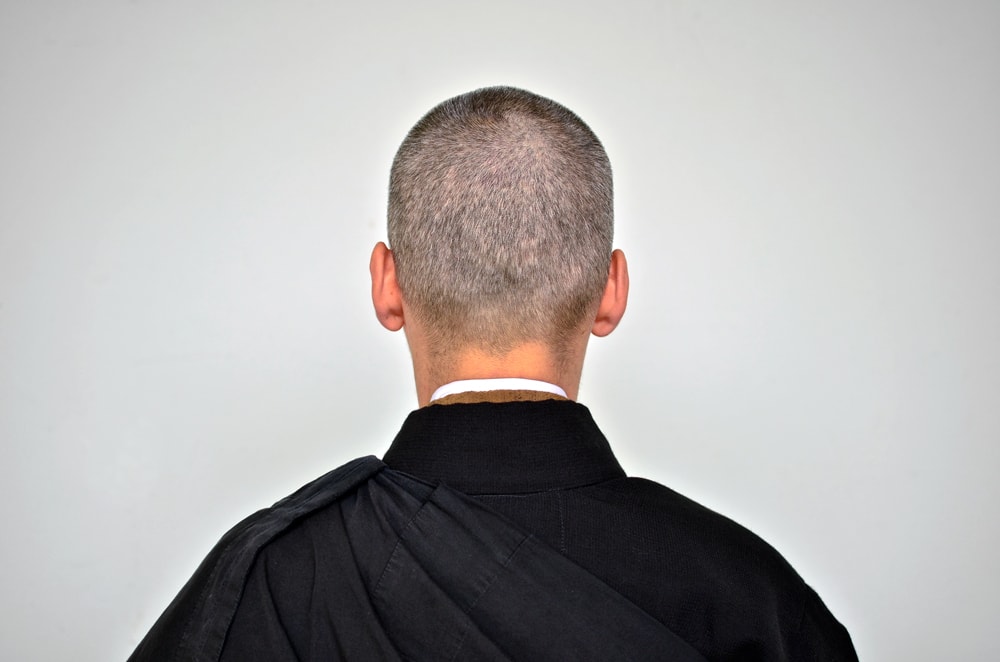Emptiness meditation may be more effective at improving wellbeing than mindfulness meditation, according to psychologists at the University of Derby, UK.
Led by psychologist and lecturer William Van Gordon, an international research team conducted the first-ever study to investigate the impact of Buddhist emptiness meditation. A central Buddhist insight, emptiness is the understanding that neither we nor any phenomenon in the universe — sentient or otherwise — has a permanent, separate, and independent core, or soul.
“Mindfulness and other contemplative techniques are very useful for creating mental calm and space in which to explore the mind,” Van Gordon said. “But one has to go a step further and undermine the emptiness of self and the emptiness of all phenomena — that’s very consistent with the Buddhist teachings across most traditions.
“In the last few decades, we’ve seen a significant increase of scientific interest in investigating contemplative Buddhist approaches. This really started with a first phase of investigations concerning mindfulness about 20 or 30 years ago. About 10 or 15 years ago there was a second phase concerning compassion and loving kindness. What we’re seeing now is a third phase of investigation focusing on wisdom, emptiness, and non-attachment.”
In order to have a complete understanding of Buddhist techniques, Van Gordon believes science must cover all three phases: mindfulness, compassion, and emptiness. He wants to see an increasing focus on the relationship between emptiness and wellbeing.
The University of Derby study compared emptiness meditation to mindfulness meditation in a controlled condition with 25 participants, including Buddhist lay practitioners and monastics. To be considered for the study, participants were required to have a daily meditation practice that spanned an average of 25 years. Furthermore, Van Gordon and his team interviewed each potential candidate to explore their understanding of emptiness before inviting them to participate.
Participants engaged in a practice of emptiness meditation on their own time. The emptiness meditation consisted of an initial phase of concentrative meditation, followed by a phase of investigative meditation. This two-stage process involved searching for an existing self and examining the underlying nature of experience, and then transcending conceptual boundaries—such as space and time—in order to obtain a universal, farsighted outlook rooted in compassion. While experiencing emptiness, participants retained control over the duration and content of the meditation and awareness of their physical body and environment.
Within the same month, they also practiced a mindfulness meditation that didn’t involve any emptiness components. Before and after each meditation, participants filled in a series of psychometric tests, which were analyzed by the research team to compare the effectiveness of each meditation approach.
The results showed that—even though participants already demonstrated high levels of wellbeing and spiritual insight—meditating on emptiness led to a 24 percent reduction of negative emotions, 16 percent increase in compassionate feelings, and 10 percent reduction in attachment to themselves and their external experiences.
Findings also showed that participants experienced emptiness as an underlying fabric of the mind and reality. In other words, they felt that the nature of reality is not as concrete as people generally think.
While emptiness meditation was shown to be more effective than mindfulness for improving wisdom and wellbeing for these participants, Van Gordon says this needs to be tested on relatively inexperienced lay meditation practitioners. Van Gordon plans to conduct further studies on emptiness meditation to explore its impact on new meditators.
If further studies suggest that emptiness is a scientific truth of existence, says Van Gordon, then it may be necessary for scientists to reexamine how they interpret psychological and physical phenomena.

